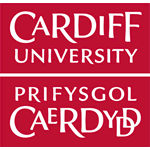
About the course
Course content
The MSc Advanced Computer Science will offer you exposure to key topics that are driving key technological developments and trends.
Computer Science is one of the fastest-moving academic disciplines and the outcomes of research and innovation in this field could have a massive social impact.
The subject spans all aspects of modern life, and this programme offers you the opportunity to apply new skills and advanced techniques to the area of your choice, whilst allowing you to demonstrate that you are at the forefront of your discipline.
Core to this programme is the opportunity to further develop the scope of your problem-solving skills by studying advanced programming languages and new programming paradigms.
You will choose to study optional, research-led modules that allow the freedom to build a distinctive personal portfolio of skills and knowledge. These are structured around advanced topics in the School's three core research areas:
• Complex Systems
• Visual Computing
• Data and Knowledge Engineering
Distinctive features:
• This is an advanced computer science degree designed for computing graduates who wish to differentiate themselves further through an advanced mastery of the discipline.
• In addition to covering core advanced computer science topics, you may select from up to two of three research topics in which to specialise (Complex Systems, Visual Computing, Data and Knowledge Engineering).
• During the summer months you will undertake an individual research project and complete a dissertation under the supervision of a member of academic research staff. The topic for this will be driven by your own interests.
Structure
You will study taught modules to a total of 120 credits during the Diploma stage of your degree. All taught modules are worth 20 credits.
The Master’s stage of your degree will be an individual project (worth 60 credits) which you will write up as a dissertation, after the Diploma stage.
During the Diploma stage, students must take all core modules and then select further optional modules to make up their 120 credit total.
During the summer months you will undertake an individual research project and complete a dissertation (worth 60 credits) under the supervision of a member of academic research staff.
This specialist Master’s degree will provide graduates of computing with the opportunity to enhance knowledge, skills and understanding of the subject through modules taught by research experts in their specialist area.
As well as being taught a compulsory module on new programming paradigms, you will choose from a range of carefully selected modules focusing on contemporary and relevant topics currently emerging within the discipline.
Core modules:
Programming Paradigms
Dissertation
Optional modules:
Information, Network & Cyber Security
Security Techniques
High Performance Computing
Visual Computing
Pattern Recognition and Data Mining
Computer Science Topic 1: Web and Social Computing
Distributed and Cloud Computing
Human Centric Computing
Informatics
Digital Forensics
E-Commerce and Innovation
Secure Applications, Identity and Trust
Teaching
The School of Computer Science and Informatics has a strong and active research culture which informs and directs our teaching. We are committed to providing teaching of the highest standard and received an excellent report in the most recent Quality Assurance Agency (QAA) review.
Modules are delivered through a series of either full or half-day contact sessions, which include lectures, seminars, workshops, tutorials and laboratory classes.
Most of your taught modules will have further information for you to study and you will be expected to work through this in your own time according to the guidance provided by the lecturer for that module.
Support
As a School, we pride ourselves on providing a supportive environment in which we are able to help and encourage our students.
We believe that providing suitable feedback mechanisms is crucial to ensure that the best programmes of study are available to our students.
We have a student/staff panel consisting of elected student representatives and members of teaching staff who meet to discuss academic issues.
In conjunction with the work of the panel, all students are provided with an opportunity to complete feedback questionnaires at the end of the Autumn and Spring semesters.
These mechanisms allow the School to regularly review courses and ensure our students receive the best provision, delivered in a consistent manner, across all of our degrees.
At the start of your course you will be allocated a Personal Tutor who is an academic member of staff in the School and serves as a point of contact to advise on both academic and personal matters in an informal and confidential manner.
Your Personal Tutor will monitor your academic progress and supply references in support of any job applications that you make.
Your Personal Tutor will monitor your progress throughout your time at university and will support you in your Personal
Development Planning. You will see your Personal Tutor at least once each semester.
Outside of scheduled tutor sessions, our Senior Personal Tutor runs an open door policy, being on hand to advise and respond to any personal matters as they arise.
Feedback:
Feedback on coursework may be provided via written comments on work submitted, by provision of ‘model’ answers and/or through discussion in contact sessions.
Assessment
Modules will be assessed either by coursework, examination, or a combination of both.
Career prospects
Successful graduates will be able to demonstrate to employers both a deep understanding and broad knowledge concerning contemporary computer science from a research and development perspective.
Graduates will be ideally placed to pursue a number of careers such as systems architects, programmers and software developers, and will be in a strong position to pursue a research career via doctoral studies.
The selection of modules on offer aim to enhance your transferable skills and boost employment prospects.